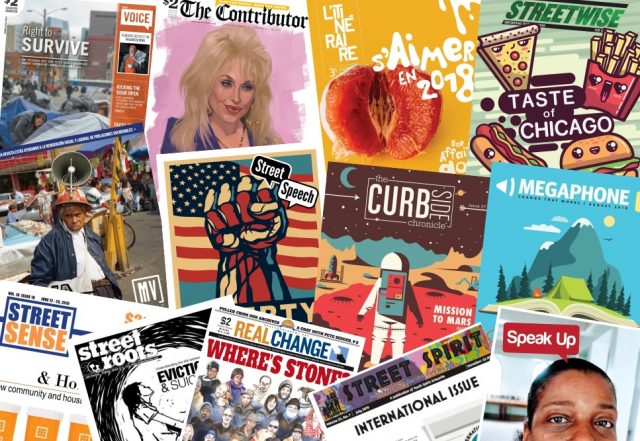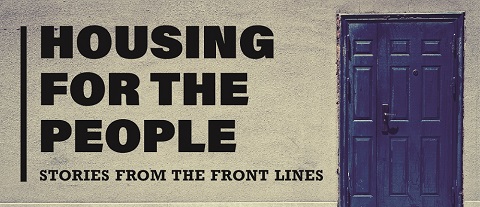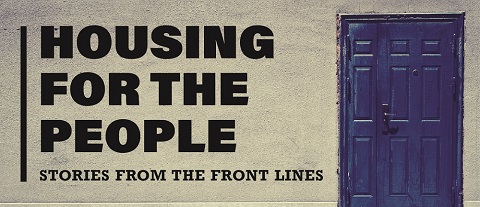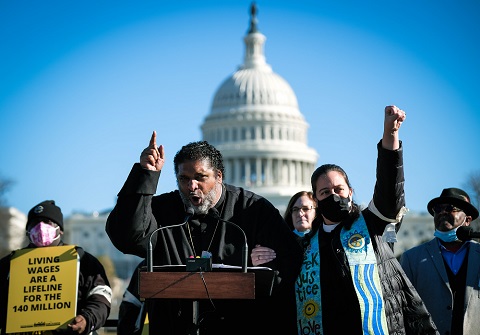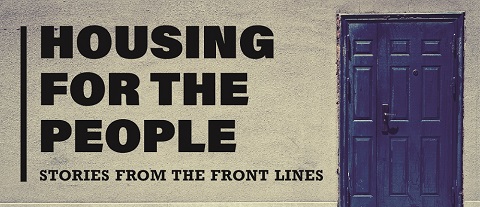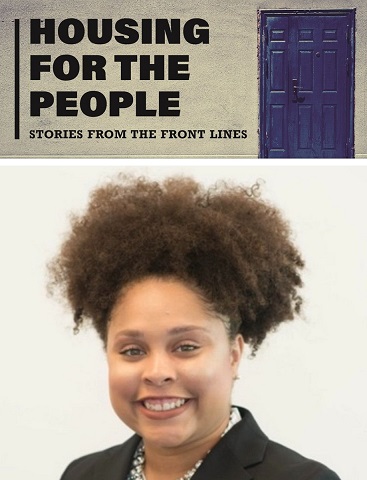On 24 June, British voters made the monumental decision to sever ties with the EU – and sent shockwaves around the world. Big Issue North, a street paper published in the north of England, asked street paper leaders and vendors around the world to share their views on Brexit.

What was shocking about the EU referendum was the debate itself – the xenophobia and open racism that seems acceptable these days. I look back and fantasise about the halcyon days when people moaned about political correctness.

In the UK the political parties are pulling themselves apart arguing how to win – whether it’s the party leadership or a general election. They are all missing the point. We do need to start winning. We need to win the debate. And the debate now is “who is to blame? The immigrants and refugees, the feckless poor – or the unscrupulous people who speculated with our hard earned pensions: the people and institutions who are, in Yanis Varoufakis’s words at the 2016 Global Street Paper Summit in Athens, Greece, “tax immune” and don’t think they need to contribute to our NHS?
Coming out of the EU will pose some real challenges. All the European nationals working here, both our staff and our Big Issue North sellers, will be affected.
“The biggest threat in my mind is the social one – that the underdog will be blamed for all that is wrong and this will lead to even greater polarisation in our society.”
The loss of EU structural funds will have an impact across the country. Already the Department for Work and Pensions has frozen some employability tenders that were to be matched with EU funding, while it waits to find out what will happen with the current five-year investment programme.
But the biggest threat in my mind is the social one – that the underdog will be blamed for all that is wrong and this will lead to even greater polarisation in our society.
We now have to work harder and be more courageous to give an alternative perspective. The debate is no longer about the EU membership – it is about the type of society and community we want to live in. The issue is how we promote the interests of the people who are suffering the brunt of this economic crisis – the migrants, the refugees, the poor people.
Michael Vogel, co-founder and managing director of Die Zeitschrift der Strasse, sold in Bremen, Germany
I have two English university degrees, worked as an expat in London 15 years ago, have personal friends in England and spent my last eight summer holidays visiting parts of the UK. As you can guess, I love the country.
Obviously, I’m in shock over the referendum’s outcome and cannot believe all this is happening. Then again, three years ago I thought that David Cameron had made a fatal strategic mistake when he put the referendum on the agenda. Had Cameron been a big fan of the EU, he might have been able to convince the British public and win people’s hearts; but Cameron himself has been bashing the EU on many occasions, so how could he possibly hope to be a credible head of a Remain campaign? Instead, he prepared the stage for Farage.
The other thing that really shocked me was the role played by the Sun, the Daily Mailand some other newspapers. In my opinion this is a severe, intolerable abuse of the freedom of the press and a threat to British democracy.
How will Germany position itself towards the UK in the future? Angela Merkel said that the disadvantages of not being part of the EU “family” must be discernible. This, I think, reflects our government’s current position well. Being too friendly with the UK might encourage other EU members to consider changing their status as well. But on the other hand, for many reasons Britain has been and will continue to remain an essential ally for Germany.

Should the EU be reformed? Yes, absolutely. It needs to become simpler, leaner, more transparent and more accountable. But more important than EU reform, in my opinion, is a fresh, positive, inspiring, energising vision for Europe.
Janne Hukka, managing editor of Iso Numero, Finland’s street paper
I was surprised by the outcome of the referendum but my shock was tempered by six years of living in the UK.
To exaggerate slightly, most Finns derive their cultural understanding of British society from TV shows that are often unrealistic and quite charming – productions based on Agatha Christie novels, PG Wodehouse, Emmerdale and other soap operas. The nasty underbelly of conservative British cultural superiority and the deep-seated arrogance of all things European/Continental is really not represented in them.
I had the chance to work and study in the UK in my student days, and was aware of the strong anti-European attitudes everywhere, from pubs to the Royal Inns of Court [in London] where I had a stint as a restaurant manager.
A lot of the time it was all a bit of a laugh at the expense of the French (smelly Frogs!) or the Germans (two world wars and one World Cup!). But the lack of similar positive banter and the extremely limited reporting on EU issues in the UK media made me aware that the final outcome of the EU vote could be quite dismal – as it turned out to be.
Finland is undergoing a similar societal transformation to the UK due to the financial crisis, austerity, the loss of jobs through globalisation, immigration (though in Finland’s case the lowest in the EU) and the collapse of the collective vision for a progressive state in recent decades. This has created a fertile breeding ground for nativist populism of the Ukip/Conservative ilk.
“The EU has been in need of a democratic reform process long before the Brexit crisis matured.”
In some sense the Finnish situation is actually slightly worse, as our local Ukip, the Finns party (formerly True Finns party) has won substantial influence in the recent elections. They are the second largest party and hold a substantial ministerial portfolio.
Brexit will certainly be exploited by right-wing populists for maximum effect. Undoubtedly some of the messages played out during the campaign will be recycled here and racist dog-whistle propaganda will be made available to larger audiences.
I feel very concerned about this, since the European populist movements are gaining traction in many countries. There is very little collective and international action from progressive movements to counteract their increasing influence.
There is a definite lack of democracy in the EU in some but not all areas of EU politics. However, in areas where elite and big business interests are concerned, the problem is definitely fundamental. The TTIP negotiations and the economic suffocation of Greece are good examples of the almost total exclusion of democratic process or leverage that civic society might have on influencing the outcome. The EU has been in need of a democratic reform process long before the Brexit crisis matured.
Jörg “Yogi” Müller, TagesSatz vendor from Goettingen, Germany
My reaction is to not believe demagogues and political loud speakers. Everyone has to make the effort to check the facts before voting. And don’t count on others to vote like you want it. My feelings for my English friends will be the same and I feel sorry for them – they get my compassion. There should be reforms of the EU. Reforms are a continuous working process. I’m grateful for more than 40 years of peace in the EU.
Andreas Pramann, sales manager of TagesSatz in Goettingen, Germany
I’m very disappointed and think that the vote will take down the EU and Great Britain power-wise and financially. It might split Britain and leave England standing alone. At the moment elites and big business are the winners in the EU. Reforms are necessary and the EU Parliament will need more rights.
Ute Kahle, sales director of TagesSatz in Goettingen, Germany
Betting and financial markets throughout the UK took a gamble that Remain would win and lost big – in money and, more severely, in respect. Who wants a partner in business he cannot be sure will stand at his side for better and worse? I’m not at all surprised by the vote. Even the murder of Jo Cox could not swing the undecided voters to a decision good for Great Britain. But if you ask the people for their opinion you have to live with their answer too. There will be massive and severe changes in our relationship with the UK. Exports, imports and the working of international companies will be affected. New taxes, new visa restrictions, etc – the worst thing is not knowing what will happen next.
Charles McCain, freelance journalist for Washington D.C street paper Street Sense
The Brexit vote was far less a vote against the EU and far more a racially charged vote against immigration.
Anyone can become an American. But, a person of colour cannot become English – even if that person swears allegiance to the Crown and becomes a British subject. Why? Unlike the US, the British Isles have little experience with a multiracial democracy. A black or brown person can legally become an English citizen, but that person will never become culturally English, no matter how much money she acquires or how upper class his accent becomes.
It is a subtle difference but a critical one. Does this mean that all English people who are white are racists? No, of course not. But, there are cultural lines that are almost impossible to cross.
Prior to Brexit, several key events occurred that pushed British voters over the edge.
“In a country with these historic issues about integrating migrants, Brexit feels inevitable. The only surprise is that people are surprised.”
In a 15-month period beginning in January 2015, more than one million refugees, largely from Syria, Afghanistan and Iraq, sought asylum in the EU. While Britain only took a handful of refugees, this ignited a fear that a white, Christian Europe was about to be overrun with black and brown people, most of whom were Muslims.
On New Year’s Eve, 2015, during a festival in Cologne, hundreds of German women were sexually assaulted. Many of the perpetrators turned out to be North African Muslims. Police discovered that most of them were refugees who had applied for asylum.
In November 2015, Islamic terrorists murdered 130 people in Paris, leading to further demands by the British public to curb immigration.
Great Britain doesn’t have the same historical experience absorbing large numbers of immigrants that the United States does. Months before Brexit, the UK government announced that between March 2014 and March 2015, net migration to the UK totalled 330,000 people.
In a country with these historic issues about integrating migrants, Brexit feels inevitable. The only surprise is that people are surprised.




